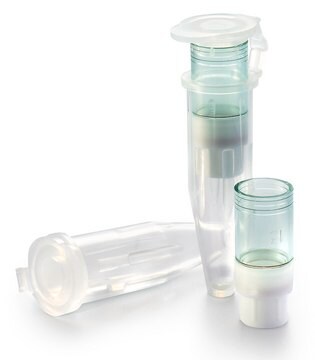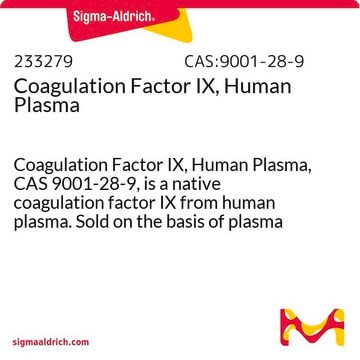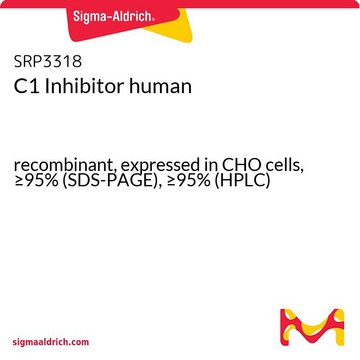EMS0011
Low-Artifact Digestion Buffer
Minimizes artifactual deamidation and oxidation during trypsin digestion prior to peptide mapping
Synonym(s):
Hi-Fidelity Peptide Mapping Buffer
About This Item
Recommended Products
form
liquid
suitability
suitable for (peptide mapping)
shipped in
wet ice
storage temp.
2-8°C
General description
Endogenous deamidation and oxidation of protein amino acids can be implicated in and be indicative of many diseases, protein turnover, development, and aging. The introduction of these modifications can often affect biological activity, half-life, and immunogenicity.
Current protein digestion workflows often introduce a significant amount of artifactual deamidation and oxidation which prohibits the measurement of the endogenous levels.
The Low Artifact Digestion Buffer allows protein digestion in less than 6 hours with minimized artifactual modifications such as deamidation and oxidation. The amount of oxidation and deamidation introduced during further downstream processing of biotherapeutic antibodies and proteins can be accurately determined. The most commonly deamidated amino acid is Asn especially when followed by small amino acids such as Gly. The most commonly oxidized amino acids are Met, Cys, and to some extent Trp and His.
Storage Class
12 - Non Combustible Liquids
wgk_germany
nwg
flash_point_f
Not applicable
flash_point_c
Not applicable
Choose from one of the most recent versions:
Certificates of Analysis (COA)
Don't see the Right Version?
If you require a particular version, you can look up a specific certificate by the Lot or Batch number.
Already Own This Product?
Find documentation for the products that you have recently purchased in the Document Library.
Articles
An optimized peptide mapping protocol using NISTmAb as a model monoclonal antibody, shorter incubation times, and improved digestion buffer to demonstrate minimal artificial asparagine deamidation and methionine oxidation.
Step-by-step workflows for the intact mass analysis, peptide mapping, and N-glycan analysis of the monoclonal antibody― adalimumab, for an accurate characterization of the critical quality attributes (CQAs) to ensure drug safety and efficacy. Read more.
Protocols
A step-by-step protocol for released N-linked glycan analysis of the monoclonal antibody adalimumab, based on UHPLC-FLR-MS and procainamide labeling.
Our team of scientists has experience in all areas of research including Life Science, Material Science, Chemical Synthesis, Chromatography, Analytical and many others.
Contact Technical Service






